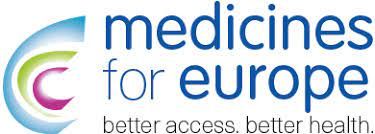- Bone Health
- Immunology
- Hematology
- Respiratory
- Dermatology
- Diabetes
- Gastroenterology
- Neurology
- Oncology
- Ophthalmology
- Rare Disease
- Rheumatology
Medicines for Europe Experts Discuss Biosimilar Tenders, Substitution, Part II
Adrian van den Hoven, director general for Medicines for Europe, and Diogo Piedade, market access manager for Medicines for Europe, analyze findings from the group's recent survey of European biosimilar markets.
In this second part of a 2-part series, Tony Hagen, senior editor for The Center for Biosimilars®, interviews Adrian van den Hoven, director general for Medicines for Europe, and Diogo Piedade, market access manager for Medicines for Europe, about findings from the group’s recent European survey of biosimilar markets: Market Review—Biosimilar Medicine Markets.
Van den Hoven and Piedade continue the discussion of EU market tenders, or contracts that award exclusive or near-exclusive rights to supply a biologic to a geographic area or health care setting.
They note that for Denmark the awarding of multiple tenders for a biologic type has enabled consistency of supply and provided a level of healthy competition.
They also discuss prevailing trends on initiation of treatment naïve patients on biosimilars and switching policies. Most countries have gained confidence with biosimilars by prescribing them for treatment naïve patients to begin with, and now the norm is closer to switching policies, as studies and experience confirm the equivalence of these products to originators, Piedade says.
The United States offers an interchangeable designation that allows pharmacists to substitute biosimilars at the counter without the intervention of a physician, and in the European Union it would seem that without such a designation pharmacists are free to make biosimilar substitutions also free of the encumbrance of checking with physicians first, but in practice it doesn’t work that way, van den Hoven and Piedade explain.
“There are cases where the pharmacist may need to switch the medicine, but in those cases, they will consult with the physician,” van den Hoven says.
Biosimilars in the European Union have moved into treatment of earlier stages of disease in some countries, and this has been a boon for patients who previously were required to use less optimal medicines first, van den Hoven and Piedade explain. This development has depended in part on growing awareness and understanding of biosimilars through support efforts that differ widely across member state boundaries.
The lessons the European Union has learned about getting biosimilars into circulation could be instructive for the United States as well. “What I can see happening in the US now is that the health insurers are understanding that just because a biosimilar is less expensive doesn’t mean it is going to be prescribed. You actually need what I would call an active policy to support biosimilar use and competition,” van den Hoven says.
Across EU member states, health care systems vary a great deal, but common among those that have been successful with biosimilar adoption is the introduction of benefit sharing, unbiased educational resources, and clear direction, Piedade says.
“These countries have a very clear, very well-defined national goal and roadmap so they know clearly where they want biosimilar uptake to be and how to get there,” he says.
Newsletter
Where clinical, regulatory, and economic perspectives converge—sign up for Center for Biosimilars® emails to get expert insights on emerging treatment paradigms, biosimilar policy, and real-world outcomes that shape patient care.

